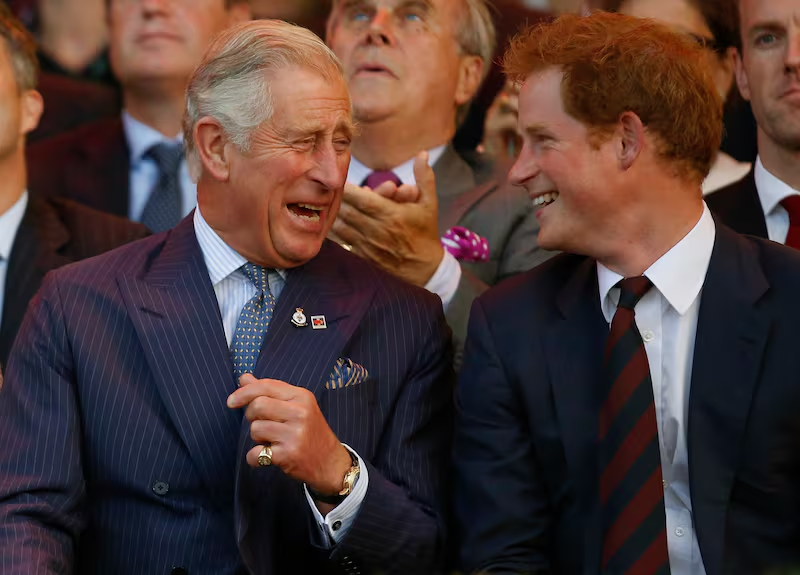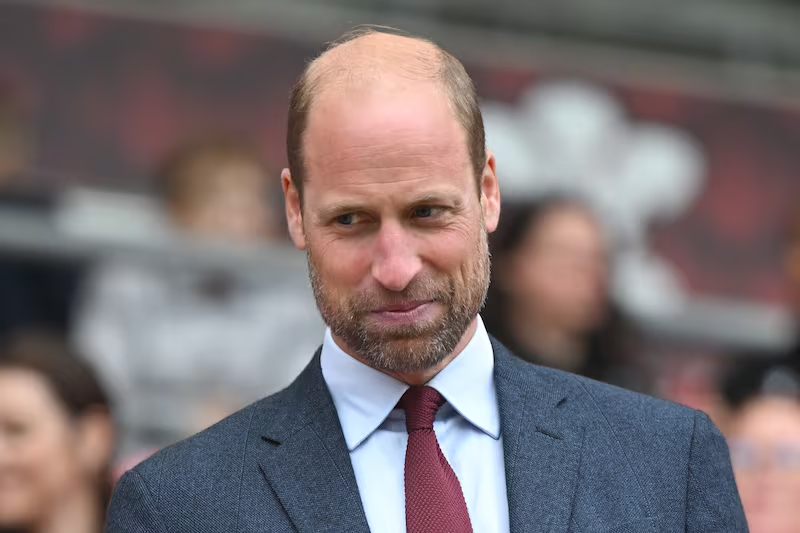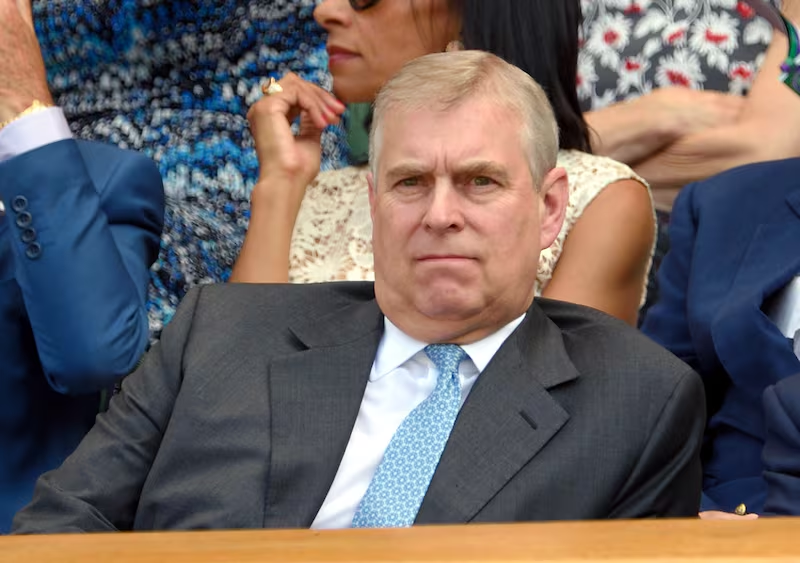Charles won’t mend bridges with Harry because... Paul Burrell
King Charles is reluctant to even speak to son Prince Harry—let alone build meaningful bridges—until Harry drops his court case against the British government, in which Harry is seeking to have full time, automatic, armed security restored to him and his family when they are on British soil.
The reason, according to an updated edition of Robert Hardman’s biography of King Charles, Charles III: New King, New Court excerpted in the Daily Mail this weekend, is that Charles fears Harry could claim he has privately offered him assurances on the matter, which would lead to the collapse of the case.
The precedent entailing such caution, Hardman’s sources say, is Paul Burrell. The erstwhile butler to Princess Diana saw an entire trial (for hoarding her personal possessions after her death) melt away after Queen Elizabeth II said, at the last minute, that Burrell had told her he was looking after the items. The memory of that particular incident has apparently left current palace officials with little appetite for a repeat performance.
Hardman cites a source in his tome as saying: “Here you have the infelicitous situation where the king’s son is suing the king’s ministers in the king’s courts. That is pulling the king in three directions.

“You also have the situation where the king’s son publishes accounts of private conversations, some of which have been, shall we say, wrong.
“So imagine the situation if the prince were to talk to his father about his court case and then later to describe that conversation —or, worse, a conversation which was not entirely accurate. There would be serious legal jeopardy. Harry would only have to say, ‘My father said this’ and a court case could collapse.”
Despite all this high-stakes drama, palace officials maintain in diplomatic tones to Hardman that the king still hopes for a rapprochement with Harry.
Charles and William fleece their subjects
Breaking news: King Charles and Prince William are disgustingly rich and growing richer, exploiting unjust and archaic feudal rights on land seized by their ancestors to make millions every year off the backs of their subjects.
A new report, published in The Sunday Times today reveals that among those paying millions to Charles and William’s private offices—known the Duchy of Cornwall (William) and the Duchy of Lancaster (Charles) are National Health Service hospitals, schools and prisons.
However, it is not just big organizations that are funding the royal lifestyle; village halls and community projects also contribute to the royal coffers for renting the land on which their buildings stand and one astonishing detail notes that the duchies even levy charges for the right to dig graves on some of their lands.

The Duchies are not to be confused with the Crown Estate, a quasi-public landowner which holds around $20 billion worth of assets and whose profits go 25% to funding official royal duties and 75% to the U.K. treasury. The Duchies are the private fiefdoms of Charles and William, who are free to spend the income on whatever they wish. Incredibly, both outfits are exempt from capital gains or corporation tax because of their royal status.
The report, a joint project with Channel 4’s Dispatches documentary series, established the U.K. royals have at least 5,400 leases operational in the U.K., earning them around £50 million ($61 million) a year—philanthropy and royal upkeep aren’t cheap, you see.
In one deal, the Duchy of Lancaster has a 15-year agreement with Guy’s and St Thomas’ NHS hospital trust which lets the hospital store its fleet of electric ambulances in a royal warehouse for a hefty £11.4 million ($14 million).
Wind farms are another cash cow. Thanks to an old feudal right, the king’s Duchy of Lancaster stands to gain at least £28 million ($34 million) because, naturally, he can charge for wind farm cables crossing the foreshore, which he owns.
Meanwhile, Prince William’s Duchy of Cornwall is making a fine sum off a 25-year lease of Dartmoor Prison to the Ministry of Justice, who are shelling out £37 million ($45 million) over 25 years. Crime pays.
In London, the king owns a massive office block called Camelford House, bringing in at least £22 million ($27 million) since 2005 from charities and tenants. Ironically, two cancer charities—Marie Curie and Macmillan, both of which claim the king as patron—downsized and relocated recently.
The Royal Navy and the Army have also paid millions for the privilege of using Duchy land.
When it comes to environmentalism, royal estates appear to be selectively green. Investigations reveal that 14% of Duchy of Cornwall properties and 13% of Duchy of Lancaster properties have dismal energy ratings (F or G). Renting them is technically illegal under current energy standards. Apparently, speeches about the environment don’t quite extend to ensuring their own properties meet basic efficiency rules.
A Duchy of Lancaster spokesman said the organization complied “with all relevant U.K. legislation and regulatory standards.”
A Duchy of Cornwall spokesman insisted it was merely “a private estate with a commercial imperative,” and emphasized “our commitment to restoring the natural environment and generating positive social impact for our communities.”
Prince Andrew cut off by the king
Robert Hardman’s new edition of his book, mentioned above, also confirms a long-standing rumor, that the king has indeed finally cut off his brother Prince Andrew’s financial support, in a last ditch effort to force him to move out of Royal Lodge, the palatial home he occupies on a cheap lease agreed in their mother’s time.

Charles wants him to move into Frogmore Cottage, formerly the home of Prince Harry and Meghan Markle. Andrew has resisted but now Charles has played his ace card: severing his younger brother’s living allowance and refusing to pay his security costs.
“The duke is no longer a financial burden on the king,” a source tells Hardman. “He claims to have found other sources of income related to his contacts in international trade, sufficient to cover all his costs—which would be a welcome outcome for all parties if that turns out to be the case. But as to whether this funding can be relied upon in the long term is another matter.”
Andy Cohen passed on Meghan Markle
Andy Cohen has revealed he turned Meghan Markle down a number of times as a guest for his nightly Bravo talk show, Watch What Happens Live.
Cohen told British chat show Loose Women (think: The View) that Markle’s agent approached WWHL a number of times when she was a star of Suits, presumably pre- her relationship and marriage to Prince Harry, only to be declined each and every time.
“I would love to have her on Watch What Happens Live,” Cohen said. “I made a very big error. When she was on Suits she was a very big Housewives fan. Her people asked us several times to have her on, and we said no.”

Cohen, putting his head in his hands at the memory, groaned: “You never know who’s going to become a duchess, you just never know.”
Cohen added he didn’t think (likely extremely correctly) that Meghan would ever appear in Bravo’s most famous franchise herself, although we think The Real Housewives of Montecito has a definite ring to it.
This week in royal history
Happy 21st birthday on Nov. 8 to Lady Louise Windsor, Prince Edward and Duchess Sophie’s daughter.
Unanswered questions
How will the royals respond to the reports of their millions—and how they make so much money?





